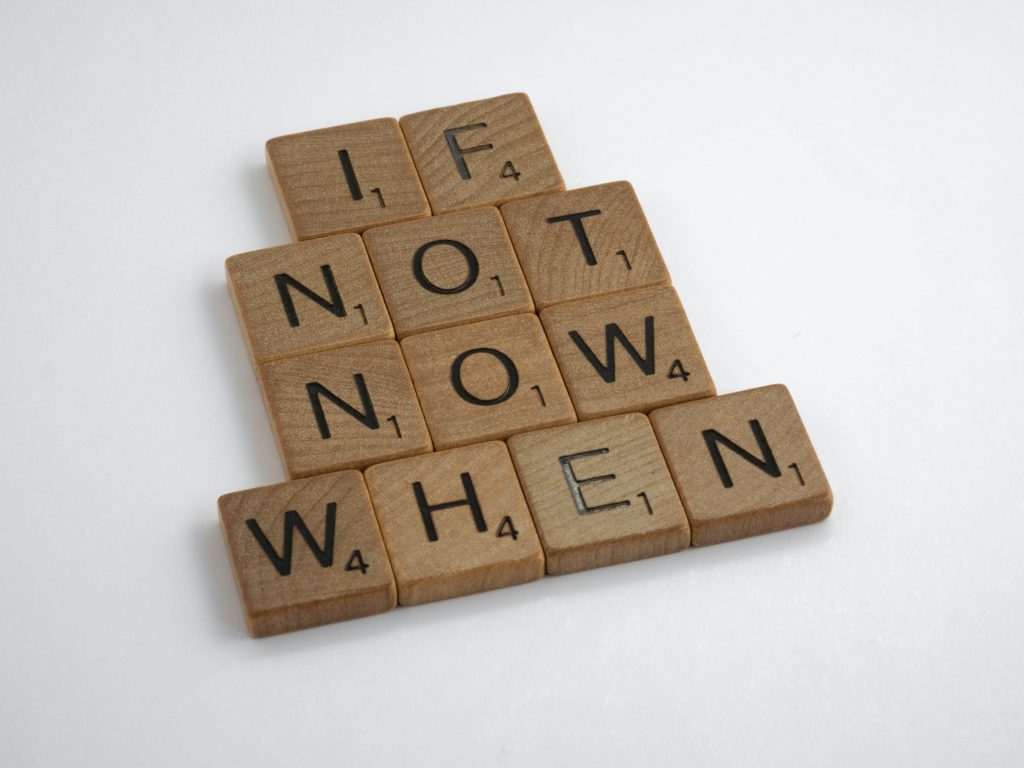
4 Ways to Stop Procrastinating and Start Writing Today
Have you ever wondered, "how do I stop procrastinating?"
Many writers struggle with procrastination. But that doesn't mean the profession is full of lazy, comatose wordsmiths. It's a common bad habit that you can overcome (and use to your advantage).
Understanding how and why you procrastinate is the first step toward dealing with the situation. In this article, I'll show you four of the best ways I found over the years to stop procrastination and start writing today.
Why Do Writers Procrastinate?

Writers are infamous procrastinators because the process is challenging both mentally and physically.
Many writers sit down to get to work, only to spend time scrolling on Twitter, Googling some tidbit of information for research purposes, or even what I like to call procrasti-cleaning.
And when you do manage to get the words down on the page, the result can bruise your confidence. The constant rejection, the energy drain, the overwhelming amount of re-writing, and the slow rewards for your hard work. It's enough to make you question your sanity.
Naturally, the body takes over to distract from the stress and anxiety. Writers wind up doing something less challenging or more rewarding in favor of working so hard.
If this sounds like you, it's not your fault entirely. You're not lazy or unfocused.
Procrastination is all about avoiding and putting off the inevitable. Sometimes you may even avoid the work you want to do - like writing your passion project. It can feel so frustrating.
But it's your brain's way of protecting you. The pleasure-seeking neurons literally redirect your attention to anything easier.
If you're like me, kicking procrastination can become a constant struggle.
As I've struggled over the years, I picked up some powerful methods for keeping myself productive. The trick I learned is to first understand how you tend to procrastinate, then brainstorm how you can stop or divert it.
To uncover your procrastination tendencies, grab a pen and paper. Start by drawing vertical lines to make three columns on the page.
Think about a time you procrastinated. Write down what you should have been doing, what you did instead, and why you think you made that choice in each column. Be specific.
You may feel guilt during this exercise. Try to move past it and focus on the activities you spend your time on without judgment. Consider what you do when you should be writing with an open mind.
Commonalities in your behavior should become more apparent when you fill in the columns. Next, you're ready to address your procrastination tendencies.
4 Ways to Stop Procrastinating Right Now

The following four tips target the main reasons writers procrastinate. Try them out and use what works best for you when and if you need them.
1. Give Yourself a Count Down
You may think you need to find the 'perfect time' for writing or that you're not ready yet. This often sounds like excuses, such as I should start writing, but I need to [insert procrastination activity here] first.
The excuses can feel insanely legitimate, even when they're not. You tell yourself that tomorrow you'll be less tired or more prepared. Alternatively, you may not have any inspiration to write.
The truth is that there's no perfect time to write. You just have to get started.
When procrastination holds you back, give yourself a count down. Count from 5 to 1 in your head. When you reach 1, you have to move. Get up and just do it.
A count down pushes your brain to jump into action. Giving yourself a quick "5, 4, 3, 2, 1, go!" may be all you need to get to work.
If you're having a hard time getting to work because you're easily distracted, cut the things that hold your attention too much. Set your phone to silent. Avoid checking your email. Make sure you have a productive workspace.
Remember, everything does not need to be perfect for you to write. Everyone makes mistakes. You can still take small steps toward your writing goal. The great part is that writing is all about re-writing.
2. Schedule Deadlines for Yourself
If you're a thrill-seeking procrastinator, you may enjoy working under tight deadlines. You may not procrastinate on the things you love to do but put off deadlines or menial tasks until the last possible minute.
If there's no short-term pain or something you can gain quickly (like a paycheck), you might avoid the work.
You can trick your brain into believing your project is more urgent or rewarding by setting and adjusting deadlines to get the adrenaline rush you seek.
The first tip I have to keep you on track with your writing deadlines is to set a writing schedule for yourself. Create a daily writing habit. Some morning routines can help you write more regularly.
Focus on each day next. Move your deadlines up on your calendar and work when you feel at your most productive. This allows your client or boss to get the results they want faster, and delivering the work ahead of time could result in raises and praise for you.
Other times, deadlines are helpful when your project is overwhelming.
If you're working on a long-term project, like a book, try breaking it into smaller chunks. Book uninterrupted writing time in your calendar. Tackle each task one by one.
Writing short summaries of your work or completing a freewriting exercise for 10 minutes can also help you focus on your writing subject without thinking about the blockage you feel.
3. Procrastinate Productively
Some writers avoid writing as a means of putting of judgment. You may fear success or failure. Or maybe you're new to writing and not fully confident in your performance yet.
If this sounds like you, I suggest focusing on what you can do. Do the best you can while you're writing. And when procrastination rears its head, focus on another productive task.
Procrastinating productively can look like responding to emails or researching instead of the writing task you should be doing. For example, I often update the SEO and keywords on old blog posts when I'm procrastinating writing articles for clients.
Moving to another productive task allows me to get more done at the end of the week because the time is still spent in a beneficial way.
You can also overcome writer's block-related procrastination by focusing on another task when you feel less creative. You might run errands, clean, exercise, return phone calls or emails.
You might be surprised at how much you can get done in a short time. You can achieve a lot in under two minutes.
This technique is a great trick for writers who find themselves easily distracted as well. Decluttering your home and workspace may help you cut distractions. If this sounds like you, give cleaning a try when writing feels overwhelming.
Keep in mind that failure and success are not bad things. They're tools you can use to learn and improve. You don't need to feel guilty about procrastinating if you work on something productive in another area.
4. Go Where the Procrastination Takes You
Sometimes avoiding procrastination can make you even less productive. There are days when your mind just isn't in the game no matter how hard you try.
When nothing else works, let the procrastination happen.
Set a timer for 30 minutes to an hour. Allow yourself to procrastinate during this time. Scroll through social media, watch TV, or focus on a hobby. When the timer goes off, get back to work.
I've noticed when I allow procrastination to take over for a short period of time, I end up more productive afterward. Sometimes procrastination is a sign that our minds need a break. And that's when working on a hobby that doesn't involve words can help kick word fatigue.
For example, I have days when the words simply won't come out right. I feel blocked, stuck, sinking in quicksand. Normally, this writer's block happens after I have taken on too much content writing for clients.
Over the years, I've realized that's when I need to head outside. Hiking in nature or even vegging out on the couch for a few hours with Netflix typically gets me back into gear.
Moral of the story: Take a break when you need to re-charge your creativity.
And if you notice you go straight for your procrastination tendencies as a reward, use them to your benefit. Perform your favorite procrastinating activity when you reach a goal or write a certain number of words. Make it your reward.
How to Overcome Procrastination Once and For All

There is no single method to combat procrastination entirely. But procrastination is a tool you can use to boost your productivity.
Design your anti-procrastination techniques around your writing process. Figure out why you procrastinate and how you can use it to your advantage. Map out the different scenarios in your mind and get to know yourself better to become a more productive writer.
The above tips can help each time procrastination strikes while you learn the best ways to overcome your procrastination.
How do you overcome procrastination? Share what works for you in the comments below.








